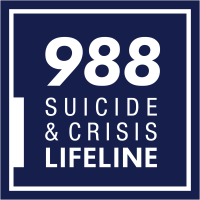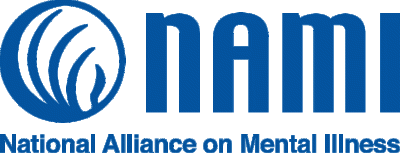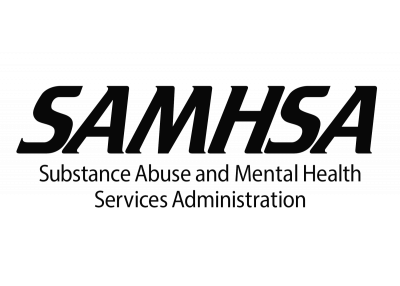Mental Health
Our regional council is dedicated to improving the mental well-being of our members and the industry as a whole. In an effort to reduce the stigma surrounding mental health in construction, we have launched a mental health and suicide prevention initiative. Our initiative will focus heavily on early intervention, encouraging our members to be more aware of recognizing the signs of someone who may be struggling on the job and providing support before it is too late. We all have the opportunity and responsibility to create a workplace safety culture where everyone feels valued, supported, and heard.
Did you know:
- 1 in 5 U.S. adults experience a mental health condition.
- 1 in 20 U.S. adults experience a serious mental health condition.
- 1 in 6 U.S. youth aged 6-17 experience a mental health condition.
- 50% of all lifetime mental health conditions begin by age 14, and 75% by age 24.
- The construction industry has the second highest suicide rate in the country behind the mining industry.
- Construction workers are 3.5 more likely to die by suicide.

KNOW THE SIGNS
Recognizing the signs of someone who may be struggling can be life-saving. Here are 10 common signs to be familiar with while on the job.
- Increased risky behaviors
- Suddenly showing up late
- Decreased productivity
- Isolation from coworkers
- Difficulty concentrating or performing daily tasks
- Extreme mood swings
- Excessive use of alcohol or drugs
- Increased conflict with other team members
- Significant changes in their physical health
- Sudden worries or fears that get in the way of daily life
Mental Health Support
If you or someone you know is having thoughts of suicide, are worried about someone you know or just need to talk, contact any of the following support resources.
-
911
Call 911 if there is immediate danger to you or someone you know.
Stay clam and tell the dispatcher "This is a mental health emergency" and ask for a Mobile Crisis Team. If a Mobile Crisis Team is not available, ask for a Crisis Intervention Team (CIT) Trained officer. Be prepared to share information about mental health history, diagnosis, triggers, what has worked in the past, details of the current situation and more.
-
TEAM
TEAM offers short-term, face-to-face counseling sessions to you and close family members to solve personal challenges and workplace issues that affect your ability to work safely and effectively.
TEAM offers support for:
- Alcohol or drug problems
- Anxiety/depression
- Behavior concerns
- Family/parenting issues
- Grief and loss
- Job-related difficulties
- Legal and financial problems
- Relationship challenges
- Stress management
For immediate support, call 1-800-634-7710 or visit https://www.startwithteam.com

-
988 Suicide & Crisis Lifeline
The 988 Lifeline is a national network of local crisis centers that provides 24/7, free and confidential support for people in distress, prevention, and crisis resources for you or someone you know.
988 Lifeline offers support for:
- Alcohol or drug problems
- Anxiety/depression
- Behavior concerns
- Economic worries
- Mental/physical illness
- Overcoming abuse
- Relationship challenges
- Sexual identity
- and more
For immediate support, call or text 988 or visit https://988lifeline.org

-
Veterans Crisis Line
The Veterans Crisis Line is a 24/7, free, confidential resource that connects you or someone you know to a real person specially trained to support veterans. Many responders are veterans and are familiar with the challenges veterans face. Responders are also available 24/7 to help active-duty service members, National Guard and Reserve members, and their families and friends through a crisis. You don't have to be enrolled in VA benefits or health care to use the Veterans Crisis Line.
For immediate support, dial 988 then press 1, text 838255, or visit https://www.veteranscrisisline.net

-
National Alliance on Mental Illness (NAMI)
The NAMI HelpLine is a free, nationwide peer-support service providing information, resource referrals and support to people living with a mental health condition, their family members and caregivers, mental health providers and the public. NAMI HelpLine staff and volunteers are experienced, well-trained and able to provide guidance.
For immediate support, call 1-800-950-NAMI (6264), text "HelpLine" to 62640 or visit https://www.nami.org/Home

-
Substance Abuse and Mental Health Services Administration (SAMHSA)
SAMHSA is a free, confidential and 24/7 national hotline that offers treatment referrals and information services for individuals and families facing mental and/or substance use disorders.
For immediate support, call 1-800-662-HELP (4357) or visit https://www.samhsa.gov.

-
FastTrackerMN
Fast Tracker is Minnesota's searchable online tool to find available Mental Health providers and Substance Use Disorder treatment program openings.
FastTrackerMN.org helps users find:
- Programs, services and provider availability
- Appointment information
- Funding and/or insurance information
- Crisis contractors and emergency information
- Helpful resources and community information
Whether you are searching for yourself, a loved one, a patient, or looking for general information, visit https://fasttrackermn.org.

-
Mobile Crisis Services
Mobile crisis services are teams of mental health professionals and practitioners who provide psychiatric services to individuals within their own homes and at other sites outside the traditional clinical setting. Mobile crisis services provide for a rapid response and will work to assess the individual, resolve crisis situations, and link people to needed services.
Mental health crisis phone numbers listed by county: https://mn.gov/dhs/people-we-serve/adults/health-care/mental-health/resources/crisis-contacts.jsp.
For more information about Mobile Crisis Mental Health Services, visit https://mn.gov/dhs/people-we-serve/adults/health-care/mental-health/programs-services/mobile-crisis.jsp.